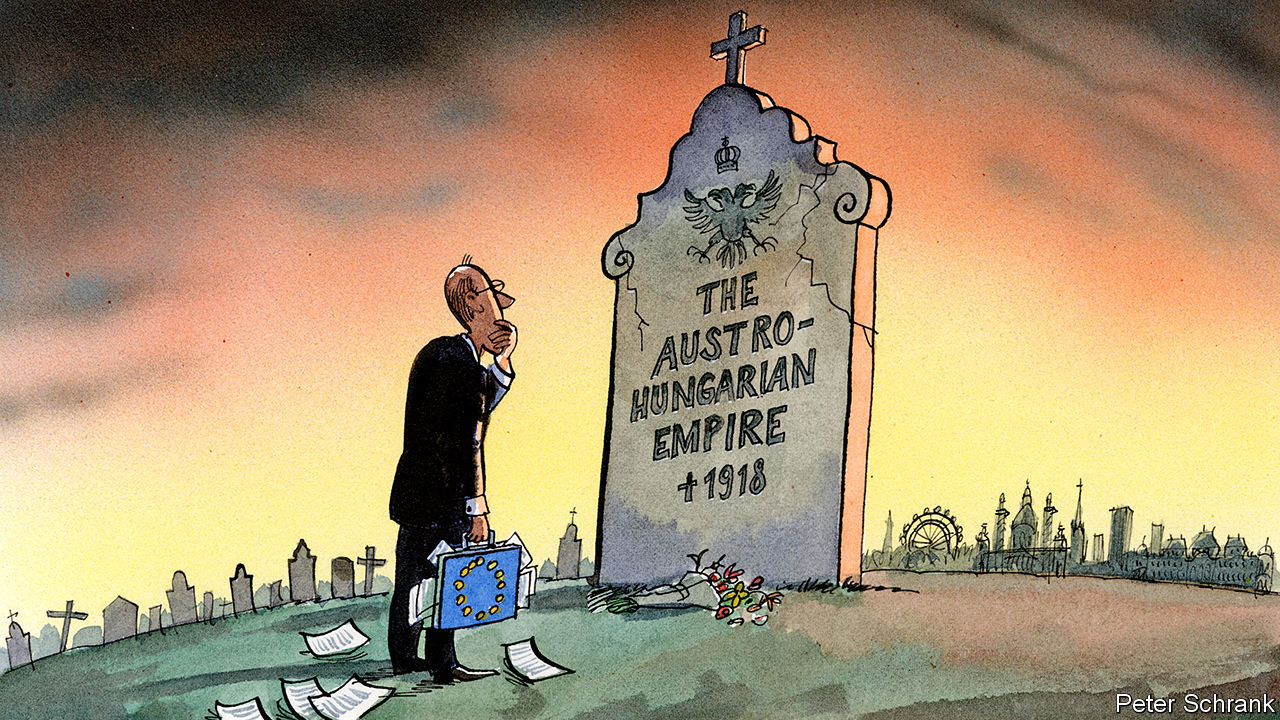 A GOLDEN late-summer light filters through the windows of the Café Landtmann. Bow-tied waiters move among towering hot-house plants. Officials huddle around a table. They are fretting about fragmentation: Europe’s north is peeling away from its south; easterners feel like second-class citizens; outside powers are trying to divide and rule. This might be a scene from the final days of the Austro-Hungarian empire in 1918. In fact it is today, 100 years later. For once more the spectre of European fragmentation haunts Vienna.
A GOLDEN late-summer light filters through the windows of the Café Landtmann. Bow-tied waiters move among towering hot-house plants. Officials huddle around a table. They are fretting about fragmentation: Europe’s north is peeling away from its south; easterners feel like second-class citizens; outside powers are trying to divide and rule. This might be a scene from the final days of the Austro-Hungarian empire in 1918. In fact it is today, 100 years later. For once more the spectre of European fragmentation haunts Vienna.
It haunts other capitals, too. In Berlin, Angela Merkel urges her ministers to read “The Sleepwalkers”, an account of the political failures that led to the first world war. Political Brussels is rediscovering Stefan Zweig’s tales of post-Habsburg Austria. In Rome a populist government is preparing to battle the EU institutions over budget rules and to seed a new nationalist block in the European Parliament. Emmanuel Macron, France’s liberal hope, is losing his sheen; his proposals for euro-zone reform have been diluted. Autocracy is gaining ground in Warsaw and Budapest. Meanwhile China, Russia, Turkey and America are interfering ever more in European affairs. The geopolitical centrifuge is spinning European states away from each other, like dancers at a ball.
No comments:
Post a Comment